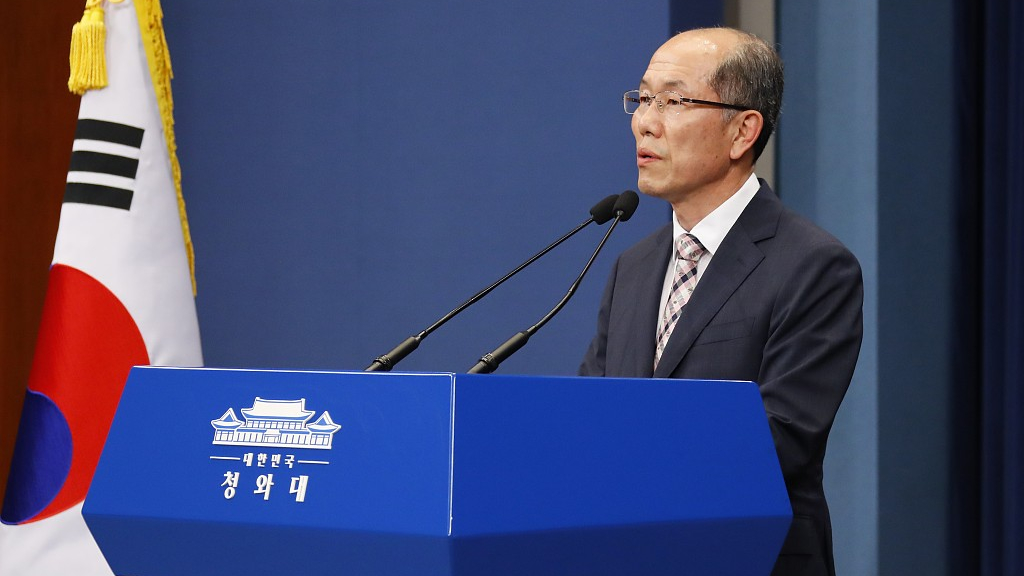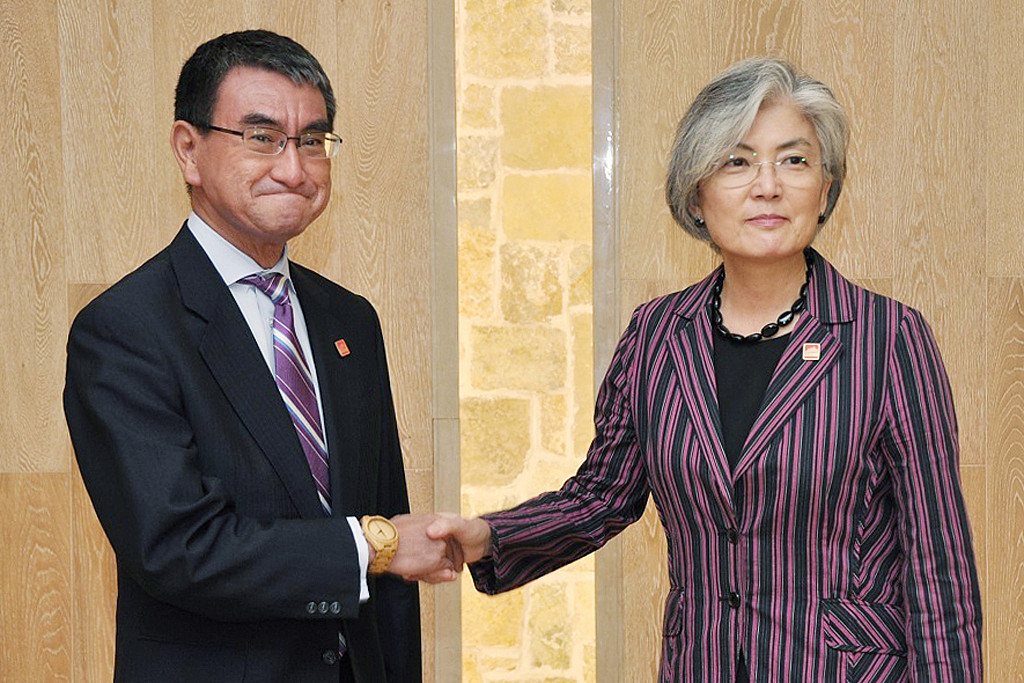

Japan-ROK relations have been going through a rough patch since July, when Japan imposed export restrictions of high-tech equipment on the ROK. Since then, tensions have kept escalating, with Tokyo further removing the ROK from the "white list" of countries that enjoy fast-track trade status with Japan earlier this month.
The latest escalation came on August 22, when Seoul decided not to renew the intelligence-sharing pact with its powerful East Asian neighbor. The pact was put in place in 2016 as a joint effort of the two countries to monitor and share intelligence regarding DPRK's missile activity, with the U.S. playing a major part in fostering this agreement. It was also the first military agreement that was signed by the two sides since the end of WWII.
The move to terminate the pact is thus highly significant and has triggered strong reactions from the Japanese side.
Due to historical and territorial disputes, which have been the main sources of friction between the two countries since 1945, Japan-ROK relations have never been easy to handle.
However, things seem more worrisome this time. According to Chen Yang, a young scholar specializing in Japan studies, the previous disputes between the two countries saw the two sides trading barbs over highly contentious historical issues, which may also be accompanied by a cooling down of diplomatic exchanges and meetings.
However, since July, the two sides have gone beyond diplomatic quarrels and resorted to measures that would seriously affect their economic and military cooperation. The series of events indicated that their bilateral relations have dropped to their lowest point since the establishment of the two countries' diplomatic ties in 1965.

Japanese Foreign Minister Taro Kono, left, shakes hands with ROK Foreign Minister Kang Kyung-wha, right, at a meeting held in a Beijing suburb, China, Wednesday, Aug. 21, 2019. /VCG Photo
The reasons for the current ill feelings are manifold. Relations between the two countries already showed signs of deterioration late last year when the ROK supreme court ruled that a Japanese company pay compensation to ROK victims for forced wartime labor. Later, Seoul also dissolved a Japanese-funded foundation that was devoted to supporting the country’s victims of wartime sexual slavery used by the Japanese military.
Japan considered these moves to be the ROK’s blatant attempt to try to renew hostility towards Japan. It believes that Seoul has been disregarding the agreements previously signed between the two countries, including the Treaty on Basic Relations between Japan and the ROK in 1965 and the agreement regarding the comfort women issue in 2015 that tried to settle the historical disputes. Fundamentally, a severe lack of political trust between the two countries have triggered the current crisis.
Moreover, the U.S. mediation efforts have not been effective enough to reduce tensions. Chen noted that even though U.S. officials, such as Secretary of State Mike Pompeo and National Security Advisor John Bolton, have expressed concern over the worsening state of Japan-ROK relations and urged both sides to find a diplomatic solution to the current disputes, these efforts prove to have failed to persuade either side so far.
This certainly has something to do with the severity of the current disputes. However, questions have also been raised over President Trump’s reaction and engagement with the two sides, or lack thereof during the crisis. Chen pointed out that compared with the Obama administration, President Trump has not been as active in trying to defuse tensions between America’s two closest Asian allies. He was relatively late in reacting to the situation and has not made a conscious effort in bringing Japan and the ROK together through diplomatic means.
This is consistent with what many analysts say is a lack of interest on Trump’s part in preserving the U.S.' alliances in the region. His hardened rhetoric towards Japan and the ROK regarding the trade imbalance issue as well as military spending and cooperation have certainly reduced the two countries’ willingness to invite the U.S. for mediation and their trust in Trump’s ability to successfully do so, noted Chen.
Therefore, judging from the current situation, the bilateral relations between Japan and the ROK are likely to remain cold for some time and there has not been much prospect for a quick overturn. However, as a three-day meeting between top diplomats of China, Japan and the ROK just concluded in Beijing this Thursday, Chen also added that while bilateral cooperation between the two countries will cool down, Japan and the ROK are likely to continue to cooperate in areas such as environment and infrastructure within the framework of China-Japan-ROK cooperation.
(If you want to contribute and have specific expertise, please contact us at opinions@cgtn.com.)

Copyright © 2018 CGTN. Beijing ICP prepared NO.16065310-3
Copyright © 2018 CGTN. Beijing ICP prepared NO.16065310-3